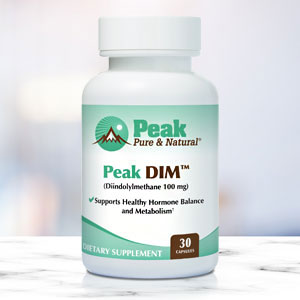We’ve been conditioned to believe that once middle age hits, some things — like a slower metabolism and an expanding waistline — are inevitable.
But is it true?
Well, it’s not called the middle-age spread because there’s not some truth to it.
But the more we understand about how that fat gets there, the better our chances are of doing something about it…
What’s really behind middle-age spread
City of Hope® is one of the largest and most advanced cancer research and treatment organizations in the United States. But few of us know it’s also a leading research center for diabetes and other life-threatening illnesses.
Their researchers recently discovered exactly why we tend to lose muscle and gain body fat as we age — even when our body weight remains the same.
They began with a well-known fact: that fat cells grow larger with age. But they suspected white adipose tissue (WAT), commonly known as white body fat, also expanded by creating new fat cells.
If true, that means it could have an unlimited potential to grow, something none of us wants to hear.
To test their hypothesis, the team transferred adipocyte progenitor cells (APCs), a group of stem cells in WAT that evolve into fat cells, taken from young and older mice, into a group of young mice.
The result? The APCs from the older animals began generating massive amounts of new fat cells rapidly. But that’s not all…
Using RNA sequencing, they compared the activity of the APC gene in young and old mice. The APCs were barely active in the young mice, but in middle-aged mice, the APCs began pumping out new fat cells as if there was no tomorrow!
“While most adult stem cells’ capacity to grow wanes with age, the opposite holds true with APCs — aging unlocks these cells’ power to evolve and spread,” said Adolfo Garcia-Ocana, Ph.D., the Ruth B. & Robert K. Lanman Endowed Chair in Gene Regulation & Drug Discovery Research and chair of the Department of Molecular & Cellular Endocrinology at City of Hope. “This is the first evidence that our bellies expand with age due to the APCs’ high output of new fat cells.”
It gets worse… the research also discovered that aging transforms APCs into a new type of stem cell called committed preadipocytes, age-specific (CP-As). Starting in middle age, CP-A cells begin churning out new fat cells that lead to weight gain.
The good news? The scientists plan future research in hopes of developing new strategies that could eliminate or block the cells to prevent age-related fat gain.
Until then, we’re all on our own to do something about that middle-aged spread.
Going after WAT to beat middle-age spread
We already have a few tricks up our sleeves to fight the battle of the belly bulge. And that’s to shift the makeup of fat in our bodies from WAT (which is made to be stored) to a form of fat the body burns for energy — brown fat.
You know diet is important, and exercise can burn fat. But at middle age, we need a little extra help.
I’ll discuss what I think are the two best ways to get that…
The first is called BAT (brown adipose tissue) activation. Your body can activate white fat to turn into brown fat when it gets cold enough. One study showed that up to 30 percent of your white fat cells can switch to brown fat when exposed to cold.
BAT activation can happen with the help of cold water immersion, cold showers and keeping the temperature in your home cooler. However, for BAT activation to work, you also have to combat inflammation. My second recommendation does that and more…
Black seed oil (from the Nigella sativa plant) is a natural anti-inflammatory. But a study on mice found that when used in combination with omega-3 fatty acids, white fat cells were reprogrammed to beige cells, which turn brown much more easily than WAT. Obesity-related inflammation was also mitigated.
So who says that middle-age spread has to be inevitable?
Sources:
Why our waistlines expand in middle age: Stem cells — ScienceDaily
The effects of temperature and seasons on subcutaneous white adipose tissue in humans: evidence for thermogenic gene induction — The Journal of clinical endocrinology and metabolism
Read full article here




